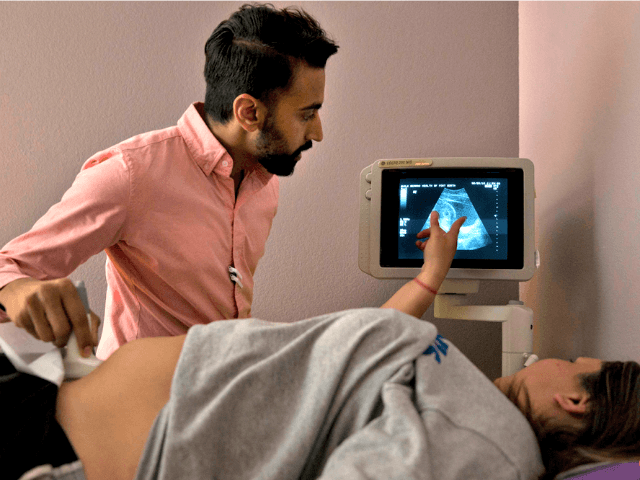Additional infants are likely born alive during some late-term abortions because biomedical companies want organs untainted by the poison ordinarily used to kill the baby prior to extraction, says the final report from the House Select Investigative Panel on Infant Lives.
The comprehensive 471-page, heavily-documented report was prepared during a yearlong investigation which included many interviews with medical professionals and examinations of company records. It states:
Laws protecting late-term unborn infants and infants born alive during abortion procedures recognize that the “right to an abortion” does not equal the right to a dead child. Federal laws prohibit a specific abortion procedure that occurs seconds before live birth, and explicitly provide that infants born alive enjoy all of the constitutional rights available to other Americans.
During the Panel’s investigation, staff reviewed tissue procurement notes, email exchanges among researchers, TPB’s [tissue procurement businesses] and abortion clinics, invoices, and more—all indicating that researchers want fetal tissue from late-gestation infants that has not been tainted by feticidal agents (e.g., digoxin).
The Panel also learned that abortion providers may modify abortion procedures, in apparent violation of the law, to increase the odds of getting an intact infant cadaver (e.g., increase the number of laminaria placed in a patient’s cervix to achieve greater dilation). Clearly, these factors increase the likelihood that unborn infants are born alive during late second-trimester abortions, and raise the question whether these infants’ civil rights are recognized by abortion providers.
The pro-life group, Live Action, provides medical animation videos depicting abortion procedures at different stages of pregnancy. An induction abortion is performed at 25 weeks, when the baby is almost fully developed and is considered able to survive outside the mother’s womb: [VIDEO]
As former abortionist Dr. Anthony Levatino explains, during an induction abortion, “the abortionist uses a large needle to inject digoxin or potassium chloride through the woman’s abdomen or vagina, targeting the baby’s heart, torso, or head.”
“When the digoxin takes effect, the lethal dose causes a fatal cardiac arrest, and the baby’s life will end,” he continues. “During the same visit, the abortionist inserts multiple laminaria sticks, or sterilized seaweed, to open up the woman’s cervix.”
Levatino explains that, on the following day, the abortionist performs an ultrasound to ensure the baby is dead.
“If the child is still alive, the abortionist administers a second lethal dose of digoxin or potassium chloride,” he says. “During this visit, the abortionist may administer labor-inducing drugs.”
During a Senate Judiciary Committee hearing, in March of 2016, on the Pain-Capable Unborn Child Protection Act and the Born-Alive Abortion Survivors Protection Ave, a pro-abortion witness testified that it is acceptable to deny medical care to a baby born alive after abortion.
In an exchange with Sen. David Vitter (R-LA), Dr. Diana Greene Foster, associate professor of obstetrics, gynecology, and reproductive sciences, said:
FOSTER: I do disagree that I can imagine situations where the doctors and nurses have decided that there is not a point in medical intervention and by whisking the baby away you’ve take away a woman’s chance to hold her child and say goodbye.
VITTER: OK, so if there is care available towards survival you think that in some cases that care should be denied.
FOSTER: I think that the law says that the child has to be taken away and receive medical care if there are signs of life, which doesn’t allow for the physician or nurse–or more importantly the wishes of the family–to say that they don’t think that care is going to help in this case and that they want to be able to hold their child.
VITTER: And if…if that care could lead to survival, do you think that should be able to be denied?
FOSTER: I think that doctors and nurses and women themselves know best whether care would lead to survival. This bill doesn’t allow that judgment to be made.
In response to that exchange during the Senate hearing, House Select Panel chairman Rep. Marsha Blackburn (R-TN) said:
It is haunting that the testimony at the hearing revealed that abortion advocates believe the right to terminate a pregnancy continues after the child has been delivered. One of our charges at the Select Investigative Panel is to specifically look into the business practices of organizations that perform second and third trimester abortions. Science tells us that these babies can feel pain and it is simply unconscionable that any organization would allow a child born alive to die, a position that was voiced during the Senate Judiciary Committee hearing this morning.
The panel’s newly released report describes many of the disturbing activities practiced in the abortion industry that were uncovered during its investigation, and makes referrals for possible criminal prosecution as well as recommendations to Congress based on the evidence revealed.

COMMENTS
Please let us know if you're having issues with commenting.